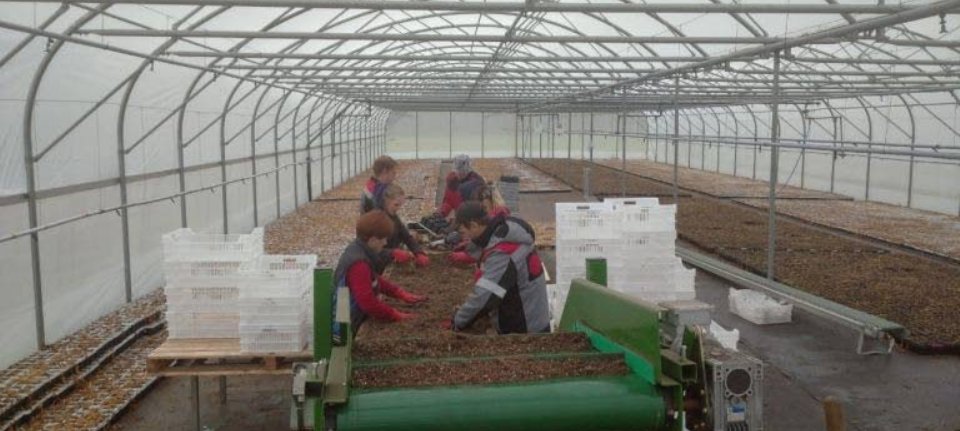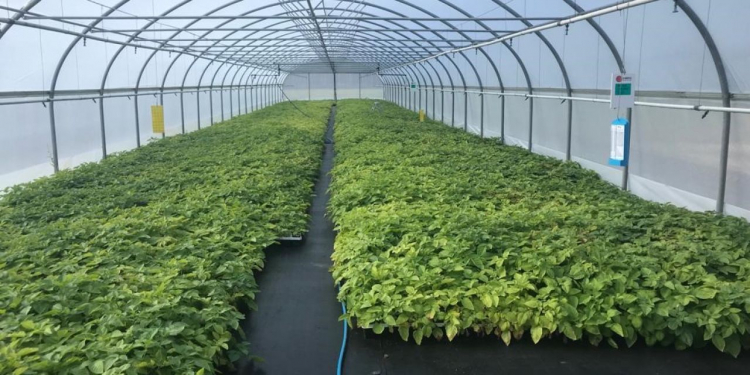There are opportunities in Russia for HZPC. The processing industry is growing and requires continuity in the supply and quality of potatoes. But quality is not yet high on the growers’ agenda.

In Russia, HZPC is pursuing an unconventional strategy to secure the seed potato trade for the future. A small-scale cultivation company was set up in 2019 to provide Russian contract growers with pre-basic seed potatoes, and in 2020 the production of mini tubers was added.
Choices prompted by Russia’s wish to be self-sufficient and to close the borders completely to the import of seed potatoes in the long term. Exports to Russia have been difficult since 2014 and seem like a finite story. The Russians are clearly phasing out the import of seed potatoes. But the country is still far from being able to achieve the same quality level as with European seed potatoes, HZPC reports.
In addition, the potato processing industry sets high standards, which are insufficiently met locally. This means that imports are still allowed little by little, but above all that there is a need for knowledge building and the development of quality cultivation. In this, HZPC sees an opportunity to serve the Russian growth market via an alternative route.
Quality versus volume
A lot of potatoes are consumed in Russia. According to Pim Bemelmans, managing director of subsidiary HZPC Sadokas in St. Petersburg, the current demand fluctuates around 6 to 7 million tons. Moreover, the processing industry in Russia is growing and with it the demand for continuity in supply and quality.
‘There are opportunities for HZPC there,’ says Bemelmans. ‘Russian growers can achieve a higher and better yield if they focus on quality, but that theme is not high on the agenda yet. Because Russia is such a huge country, they think in volume here. There are still enough square meters. Farms are gigantic companies with a size of 2,000 to 3,000 hectares and a general manager who is far removed from cultivation. ‘
HZPC Sadokas has built up a fairly solid basis in Russia with a number of large contract growers, with whom the competitors also do business. ‘It is not easy to expand the number or to find smaller companies that want to focus more on quality,’ says Bemelmans. ‘In combination with the increasingly difficult import of starting material from the Netherlands and Finland, this led to the idea of growing pre-basic seed potatoes ourselves. So that we are less dependent, but also to discover whether it is even possible to grow virus-free seed potatoes here. ‘
Virus pressure high
Because Russians all have their own allotment where they grow potatoes endlessly, the virus pressure in this country is very high. ‘There is always such an allotment in the area that is bothering agriculture. Then it would be too risky to outsource the cultivation of pre-basic seed potatoes to companies that focus on volume instead of quality. ‘
The good news is that HZPC has succeeded in growing virus-free seed potatoes over the past two years, but not everything went smoothly. Another challenge is to find local Russians who are knowledgeable, practical and show initiative. ‘In addition, the low level of trust in Russia does not make it any easier. Everything has to be paid in advance, the control pressure is high and finding local partners is a major challenge, ‘says Bemelmans.

Another perspective
‘It’s a matter of give and take’, thinks Pim, who took on the role of managing director of HZPC Sadokas in 2019, and moved to Sint Petersburg. He has been fascinated by Russia since he was a teenager, but no more or less from the Dutch culture than Belgium, for example, where he studied. ‘The Soviet history means Russians have a completely different perspective and this can sometimes clash with our views. This has been combined with a high pace of change since the economic plan was implemented. Developments are moving rapidly while structure and coordination may be lacking.
The Russians are highly flexible and able to switch gears efficiently, on the one hand. On the other, however, there is still enormous bureaucracy which takes up a huge amount of time. Even at Sadokas, there is a heavy emphasis on accounting and spending time signing off all the documentation.’‘The low level of trust in Russia doesn’t make things any easier either’, adds Pim. ‘Everything must be paid in advance, there are a lot of checks and finding local partners is a huge challenge.
But this also presents an opportunity for HZPC as we are doing more than just trading. We are actively involved with our growers and the market and distinguish ourselves with a focus on quality in the production processes. We can use this to gain trust. We share our expertise and experience via webinars and podcasts and the fact that we are now a production farm helps too.We are clearly showing that we know how to farm in Russia, as a result of our own experiences. That was not the intention of this project and we are primarily a trading company but it is a positive side-effect from having the farm.’








